Tibetan nuns also have been subjected to sexual torture at the hands of the Chinese Communist Party (CCP), but their stories are still lesser known. In 2018, the Tibetan Center for Human Rights and Democracy (TCHRD) published a firsthand account of a monk witnessing nuns being sexually abused by the communist officials in the re-education center in Sog County, Nagchu prefecture, Tibet region.
Tenzin Sangmo, a researcher with the TCHRD, told The Epoch Times in an email that their 25 years of research have provided them with “anecdotal evidence of sexual abuse” suffered by Tibetan women and nuns.
“This eyewitness account by the monk was obtained with great difficulty,” she said. “It is understood that the monk was detained in one of the many extra-legal political re-education centers with other monks and nuns.”
Sangmo added that gathering such information from inside Tibet has become “increasingly difficult” after 2008, and even more so from 2016 to 2017 because of the “massive ramping up of censorship and surveillance.”
“Contacting those inside Tibet is an exercise ridden with unbounded risk,” she added.
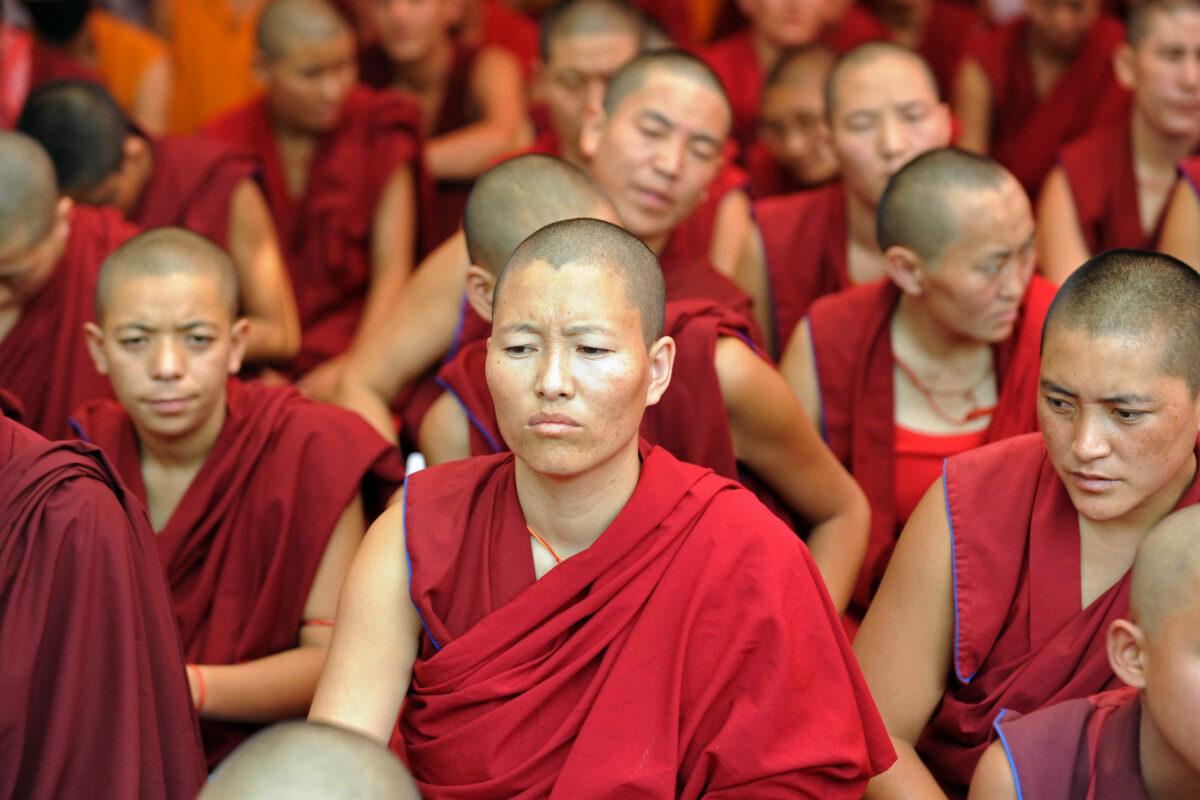
Though an officer informed him that the center “is a school, not a prison,” the monk said in his personal account that he soon realized that place was nothing but a prison meant to brainwash and coerce Tibetan Buddhists.
“Many nuns would lose consciousness during the [military] drills,” the monk wrote, according to the TCHRD report. “Sometimes officers would take unconscious nuns inside where I saw them fondle the nuns’ breasts and grope all over their body. ... I have heard about some officers lying in the nuns’ bedroom pressing unconscious nuns underneath.”
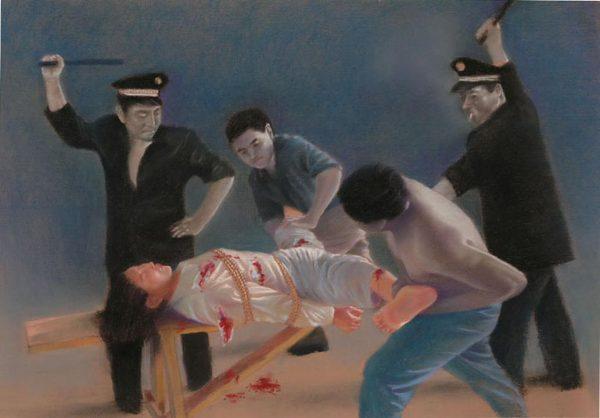
Sangmo said thousands of monks and nuns have been evicted from renowned Tibetan academies like Larung Gar and Yarchen Gar in Kardze, Tibet region, and then rounded up for political re-education to “steer them away from spiritual pursuit as their path is deemed incompatible with the characteristics of a model Chinese citizen.”
Like other monks and nuns who were forced out of their monasteries, the anonymous monk detained at the Sog County re-education center couldn’t return to his monastery or continue with his monastic education after his release.
“He was forced to disrobe after his release from the political re-education center,” Sangmo said. “Most of the monks and nuns evicted from these two prominent Tibetan Buddhist academies are subjected to similar restrictions.”
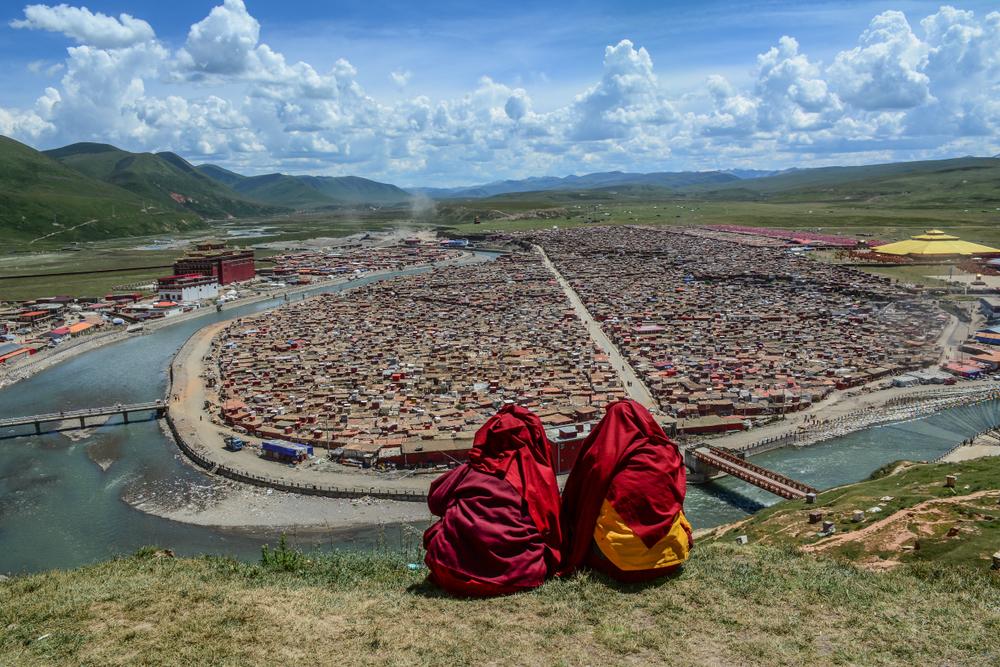
Tenzin recounted how the local authorities repeatedly visited her, asking her what she had been doing in India. “The Chinese authorities are increasingly suspicious of Tibetans who attend Tibetan government in exile-run schools and religious institutes, as they consider them to have been influenced by ideas of separatism,” she said, according to the ICT report.
Unable to “stay in peace,” Tenzin decided to leave home together with a group of Tibetans, including two children. However, five soldiers stopped her at a checkpoint and later took them to a military building where a Tibetan soldier asked if she is a nun, having seen her shaved head. When Tenzin said yes, the Tibetan soldier cursed at her and the rest of them hit her with batons and belts.
For the next few days, Tenzin’s arms and feet were cuffed to a wooden bed and she was locked in a room. One night, two prison guards came in and forced her to swallow some medicine, before raping her.
“I sensed something bad was going to happen, I screamed as loud as I could in the hope that someone would come to stop them. But all was in vain,” she said. “Later I fell unconscious. I don’t know if that was because of the medicine they gave me or out of fear. I could not feel anything, especially the lower part of my body.”
Another nun confirmed that they were “constantly raped by seven or eight people” and “left naked” after the ordeal.
Sangmo told The Epoch Times that nuns are subjected to the “same level of torture” as others, and physical torture is “accompanied by psychological torture.” She confirmed that there is no sign of relaxation in restrictions or persecution faced by the Tibetan people, rather the repression has only worsened.
“It has worsened since 2008 and more so after the coming of Xi Jinping to power,” she said. “His consolidation of power and implementation of his vision of socialism with Chinese characteristics for a new era has meant more repression of Tibetans.”
She added that the situation in Tibet cannot be assessed based on statistics alone because “there is no research environment.”
“Information trickles out of Tibet, and statistics need a sufficient pool of information to support it. Therefore, any change in statistics is not indicative of a change in the situation. Using statistics in cases like this could deny the complexity surrounding the issue,” Sangmo said.



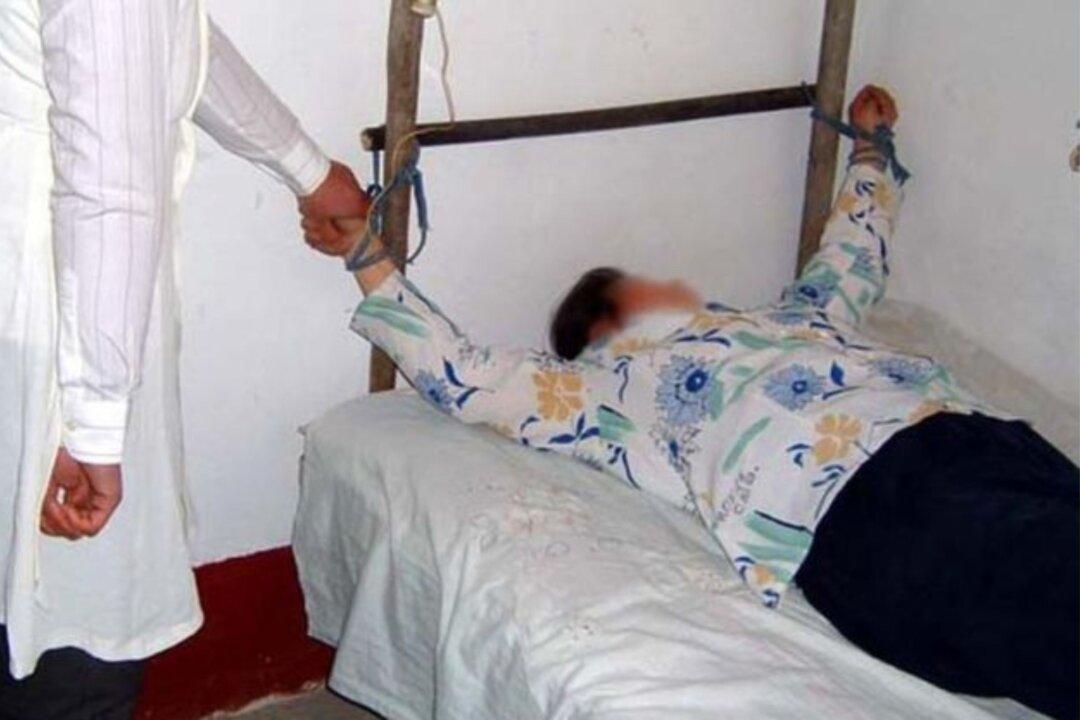

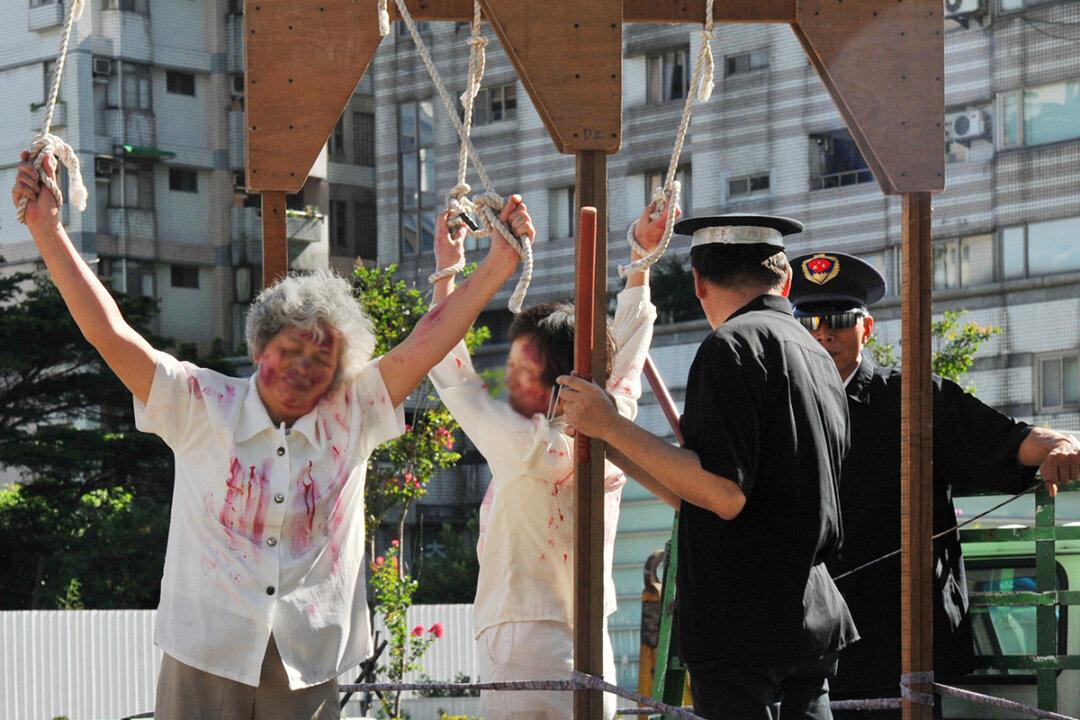
![‘Killing You Would Be the Same as Killing Ants’: Prisons Where Innocent Citizens Are Tortured [PHOTOS]](/_next/image?url=https%3A%2F%2Fimg.theepochtimes.com%2Fassets%2Fuploads%2F2023%2F12%2F09%2Fid5544114-Falun-DaFa-practitioner-1080x720.jpg&w=1200&q=75)